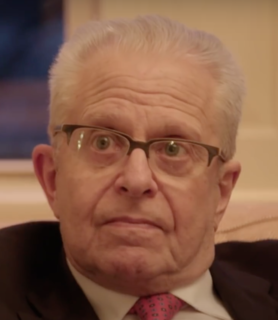A Quote by David Limbaugh
Americans were outraged and horrified by this president's reckless spending and his endless assaults on the Constitution, but no issue drove them to rise up and fight back like Obamacare - both the abominable legislative monstrosity itself and the tyrannical, corrupt manner by which Obama crammed it through the legislative process.
Related Quotes
The whole body of the nation is the sovereign legislative, judiciary, and executive power for itself. The inconvenience of meeting to exercise these powers in person, and their inaptitude to exercise them, induce them to appoint special organs to declare their legislative will, to judge and to execute it. It is the will of the nation which makes the law obligatory.
President Obama's biggest advocates believe that Americans are ready to embrace his vision for the United States: a less muscular America on the world stage, an America with a more controlling executive branch and less conflict in the legislative branch, an America in which the government takes care of us, be we Pajama Boys or Julias.
President-elect Trump has the vision. And what Mike Pence brings to the table as vice president-elect is somebody who knows Capitol Hill. So he can take Donald Trump's vision, help translate that into actual policy, legislative language, bill text, working through the process so that it ends up back on Donald Trump's desk so that he can sign it into law.
President Barack Obama couldn't bring everything into existence through Congress. Because from the day that he was elected president of the United States, the United States Congress, many of the Republicans met, and they declared that they would never allow his legislative program to succeed. And for eight years they fought him.
The constitution has divided the powers of government into three branches, Legislative, Executive and Judiciary, lodging each with a distinct magistracy. The Legislative it has given completely to the Senate and House of Representatives. It has declared that the Executive powers shall be vested in the President, submitting special articles of it to a negative by the Senate, and it has vested the Judiciary power in the courts of justice, with certain exceptions also in favor of the Senate.
During his presidency, Truman and the Republicans were locked in a series of furious assaults on each other that outraged him and made Truman an enduring foe of a party and its representatives, which he saw as on the wrong side of almost every domestic and foreign policy issue he considered important.
Now that Mr. Trump is the President-elect: If he chooses, he can, by executive order, repeal most of what President Barack Obama brought into existence, including the thawing of the relationship between the United States and the people of Cuba. And because there is a Republican Senate, a Republican House of Representatives, a Republican president, it is more than likely that his legislative program will be accepted; his nominations to the Supreme Court may very well be accepted.
It seems to me that the real political task in a society such as ours is to criticise the workings of institutions, which appear to be both neutral and independent; to criticise and attack them in such a manner that the political violence which has always exercised itself obscurely through them will be unmasked, so that one can fight against them.
I say further that for this great legislative body to ignore the Constitution and the fundamental concepts of our governmental system is to act in a manner which could ultimately destroy the freedom of all American citizens, including the freedoms of the very persons whose feelings and whose liberties are the major subject of this legislation.
































